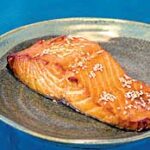 Researchers from the University of Gothenburg, in Sweden studied the association between fish intake and academic achievement among Swedish adolescents.
Researchers from the University of Gothenburg, in Sweden studied the association between fish intake and academic achievement among Swedish adolescents.
First, the details.
- 10,837 school children completed a questionnaire on respiratory items, socioeconomic conditions, and dietary information.
- School grades for each child were obtained.
- The association between fish intake and academic grades were recorded and adjusted for potential confounding factors (eg, parents’ education).
And, the results.
- Grades were higher in children who ate fish once a week compared to less than once a week.
- Grades were even higher in those who ate fish more than once a week compared to less than once per week.
- Even among students of better educated parents, grades were significantly higher among students with frequent fish intake.
The bottom line?
The authors concluded, “Frequent fish intake among schoolchildren may provide benefits in terms of academic achievement.â€
The study is interesting because it looks at adolescents (15-year-olds) rather than the effects of omega-3 on the offspring of pregnant women — the more common area of research.
And, there’s support for the findings.
A couple of years ago, the same researchers reported that in 15-year-olds there was a positive association between the number of fish meals per week and cognitive performance measured 3 years later.
Other research, summarized here, by Dr. William Lassek, from the University of Pittsburgh analyzed the scores of almost 4,000 IQ tests by children between 6 and 16 years old. Girls who ate enough omega-3 scored an average of 1% higher than those who didn’t. “Enough” was not defined in the article.
These data suggest that the pay-back for eating fatty fish is positive and rapid, within a year or so.
1/29/10 20:29 JR